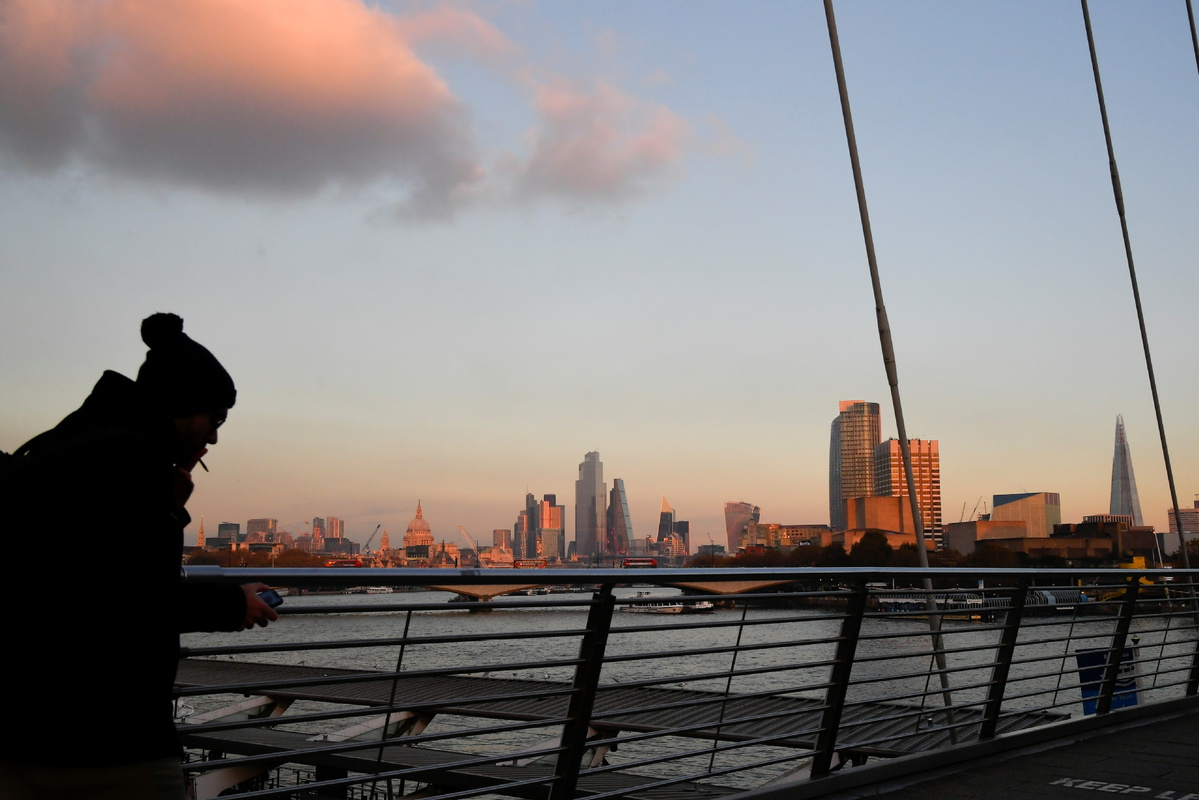Infections down by 1/3 in England's lockdown
By EARLE GALE in London | China Daily Global | Updated: 2020-12-01 09:10

After successes, PM calls for unity ahead of vote on nation's new three-tier system
England's second national novel coronavirus lockdown, which began on Nov 5 and will end on Wednesday, was effective in bringing down the number of infections, according to a study by Imperial College London and market researchers Ipsos MORI.
Analysts found the number of people acquiring the virus that causes the COVID-19 disease fell by around one-third during the four-week lockdown, with the greatest change happening in parts of the nation that had been hardest-hit.
Health Secretary Matt Hancock welcomed the findings.
The Financial Times quoted him as saying: "This latest data shows we must keep our resolve and we cannot afford to take our foot off the pedal just yet, despite the encouraging fall in cases and progress on vaccines."
The analysis was based on swabs from more than 100,000 people taken between Nov 13 and Nov 24 as part of the React-1 study, which aims to give an up-to-date snapshot of the virus situation.
The researchers said the lockdown had driven the reproduction rate-the so-called R rate that indicates how many people are infected by each contagious person-down to 0.88. An R rate that is less than 1 indicates the prevalence of a disease is shrinking. It was last below 1 in the UK on Aug 14.
Before the second lockdown, cases had been accelerating fast, the BBC reported, with a doubling every nine days at the end of October. Cases have since slowed and the number is halving every 37 days.
Around one person in every 100 now has the novel coronavirus in England, where there are around 72,000 new infections a day now in comparison to 100,000 a day at the end of October.
Paul Elliott, a professor at Imperial College London and the person who led the study, said on Radio 4's Today program the results were "encouraging".
"As we approach a challenging time of year, it's even more vital that, through our actions and behaviors, we all play our part in helping to keep the virus at bay," he said alluding to the risk from additional social interaction expected during the Christmas period.
England will return to a strict version of its three-tier warning system on Dec 2 through which the risk will be monitored geographically and restrictive measures introduced accordingly.
Around 99 percent of England will start out in one of the strictest two tiers, where social interactions will be kept at a minimum.
Prime Minister Boris Johnson's government, which endured a small revolt from extreme pro-business members of the ruling Conservative Party when the second national lockdown was introduced, attempted to assuage lockdown skeptics on Monday by publishing impact assessments for the new three-tier system, which included details of the 30 percent fall in infections.
The government will hold a vote on Tuesday in the House of Commons ahead of the introduction of the new three-tier system. Despite the embarrassing opposition from within his party, Johnson is not likely to lose the vote.
Johnson wrote to rebel lawmakers on Sunday, saying: "There is every reason to hope and believe that the worst is nearly behind us, so now more than ever is the time to demonstrate unity and resolve."
He also promised them the anti-COVID measures will only stay in place until Feb 3.
In the meantime, the three-tier system, the two national lockdowns, and other impacts from the pandemic have plunged an additional 700,000 people into poverty in the UK, according to analysis from the Legatum Institute think tank.
The institute, which aims to help lift people out of poverty, said the UK now has more than 15 million people, some 23 percent of its population, living in poverty, which it defines as less than 60 percent of the median UK income, which is 439 pounds ($586) a week for a couple with two children.
Philippa Stroud, a Conservative Party member of the House of Lords and the institute's chief executive, told the Guardian newspaper there is a "clear need for a comprehensive anti-poverty strategy to be placed at the heart of the UK's COVID recovery response".
She also urged the government to continue paying an additional 20-pound a week in benefits for the poor, which has been in place since the start of the pandemic but is slated to end in April.
A survey from the employment website Indeed shows that London has been the hardest hit of Europe's large cities in terms of lost job opportunities, which adds to the pressure on the least well off.
























